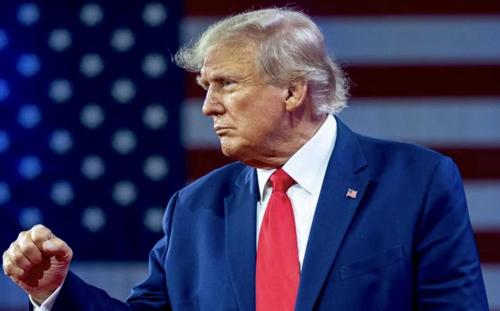
WASHINGTON, April 25, 2024 (BSS/AFP) - Donald Trump, after his 2020
reelection loss in the US state of Michigan, conspired to have so-called
electors name him the winner, but unlike those individuals he has not been
charged with a crime, an official said Wednesday.
The case is similar to one in the southern state of Georgia -- another key
state in Joe Biden's electoral victory -- in which Trump and several others
are facing criminal charges.
The so-called "fake elector" schemes were also cited by Special Counsel Jack
Smith in the federal election subversion case filed against Trump in
Washington.
Electors -- representatives of the winning candidate in each state -- sign
official documents which are sent to Congress after presidential elections.
Despite Trump's 2020 loss in Michigan, his representatives nonetheless signed
documents saying he had won.
In July 2023, the state's attorney general brought charges against those 16
people.
Fifteen have pleaded not guilty, while one agreed to cooperate with
prosecutors in exchange for the charges against him being dropped.
An investigator on the case testified Wednesday in a preliminary hearing
that, in addition to the 16 people indicted, there were several others who
participated in the events but have not been charged.
When asked if the co-conspirators included Trump and several of his
associates, Special Agent Howard Shock replied "Yes," local media outlets
reported.
The other associates included Trump's then-chief of staff, Mark Meadows, as
well as Rudy Giuliani, the former mayor of New York who worked for Trump's
campaign.
Both have also been charged in the Georgia case.
Under American judicial tradition, the names of conspirators are not usually
made public if they are not charged with a crime.
According to the attorney general, an elected Democrat, the 16 defendants met
secretly in the basement of the state Republican Party headquarters to sign
documents in which they certified that they were the legitimate electors of
Michigan.